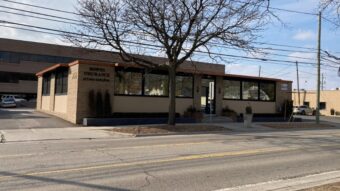By Nick Ryan, CEO – Marquette Real Estate Investments, LLC
Many times in multi-family development, different parties have different investment timelines. For example, an investor likely has a short investment time horizon, while their development partner may wish to own the property for the long term. With recapitalization, the investment goals of both parties can be met. This has certainly been the case for us at Marquette Companies.
By recapitalizing, the partner seeking to maintain ownership refinances the property with a different type of investor, perhaps a value-add investor seeking to increase the performance of the property or a core investor looking for stable, low-risk returns. With funds from the recapitalization, the opportunistic investor receives a negotiated price for the property, allowing them to cash out in the timeframe they desired.
Romeoville, Ill. Recapitalization: A success story
This recapitalization strategy was recently used for HighPoint – Serenity, a 200-unit apartment complex in Romeoville, Ill., that Marquette built with Boston-based Boston Financial Investment Management in 1998. Under a 15-year tax credit plan, Boston Financial planned to exit the investment in November 2013. However, we weren’t ready to part with the property yet. So instead of selling, we negotiated a price with Boston Finanical six months before the exit deadline, secured new debt through a Federal Housing Administration loan and paid back Boston Financial with these FHA funds.
The recapitalization worked well for all parties. Boston Financial met its return parameters, and Marquette was able to refinance it and keep the property in its portfolio. With FHA as the new lender, we are now adding value to the HighPoint – Serenity apartment complex by painting the buildings, resurfacing the parking lots and installing new hardwood flooring, appliances and countertops.
We’re thrilled that we were able to keep HighPoint – Serenity and update it for the long-term. The 13-buildiing complex contains two-bedroom, one-bath units with nine-foot ceilings and in-unit laundry. It has a 27,000-square-foot community center and a swimming pool. Located in the I-55 corridor, it consistently maintains a 99 percent occupancy level.
Fits all investor types
One of the biggest benefits of recapitalization is it can work for a variety of investment partners – from the opportunistic and value-added investor to those seeking core assets. Recapitalization allows developers to hold an asset for the long term by the ability to partner with the opportunistic, value-add, or core asset investor throughout the lifecycle of the property. For instance, the start-up of a multifamily project often attracts opportunistic funds looking for a high return; they’re willing to take a risk by either building something new or turning around an existing property. Once this asset is performing, opportunistic investors are usually ready to cash out and reinvest in another venture. Through recapitalization, they can achieve their return parameters often quicker and easier than putting the property on the market.
Next up is the value-add investor. Once an opportunistic investor decides to cash, the original developer can recapitalize a property with a value-add investor, pay off the opportunistic investor and begin renovation or repositioning work to bring it to its full potential, all the while maintaining continuity in management. Once the property is fully stabilized, the value-add investor may be ready to exit. In that case, the developer can pay them a negotiated price with funds through yet another recapitalization – this time with a core investor seeking a fully stabilized asset with predictable returns and minimal risk.
A fair, speedy process
At Marquette, we’ve found many benefits in keeping the same asset and rotating its investment partners. By keeping a property, you’re already familiar with all its nuances, which can play a big role in determining its price. And as well all know, a key factor to a successful recapitalization is arriving at a fair price for the property when an investor wants to get their capital out. A lot of people feel like they have to go to the open market to get a fair selling price, but this can be achieved by each side getting their own third party appraisal.
The recapitalization process actually saves everyone time and money by eliminating marketing costs, legal fees, brokerage fees and real estate transfer taxes. It takes a little more trust and third party verification, but there are no startup delays for the new investment venture. We already know the product, and we can move right into action.
How to recapitalize a turnaround asset
Recapitalization was also successful for Marquette’s Signature Club apartments, a 324-unit garden apartment community in Ann Arbor, Mich. Marquette acquired the property in 2011, together with long-time business partner Seminole Real Estate Advisors, a financial services firm based in Belleair Bluffs, Fla. At the time, the economy was still in its infancy in the recovery cycle. Seminole and Marquette were able to meet their joint return objectives by completing significant improvements to the property, restructuring its debt and equity and implementing Marquette’s lifestyle service systems: WECATER and Community Life.
Through recapitalization Seminole executed its investment strategy of turning over its capital after three years, while Marquette saw additional upside in the property and approached one of its value add institutional investors, Hartford, Conn.-based Hartford Investment Management Co.
Using recapitalization, Marquette and Himco renovated the interiors of many of the units and added a much larger fitness area to the community center. By adding supplemental Freddie Mac financing, using HFF Inc. as the lender, and by having renovation plans completed prior to closing, the Marquette/Himco partnership was able to start property improvements immediately. Like any successful partnership, recapitalization works best for investors when they join with a trustworthy owner. If that sounds appealing to you, feel free to reach out as Marquette is now seeking more investors to bring into its existing portfolio, which includes the management of 11,000 residential units throughout the Midwest, Texas and Denver.
Nick Ryan is CEO of Marquette Real Estate Investments, LLC, one of a family of related real estate companies called the Marquette Companies. He co-founded Marquette in 1983 and since its formation, it has designed, developed, acquired and operated more than $2 billion of apartments, master planned communities, student housing, mixed use developments, office and industrial properties. He can be reached at nryan@marqnet.com.



